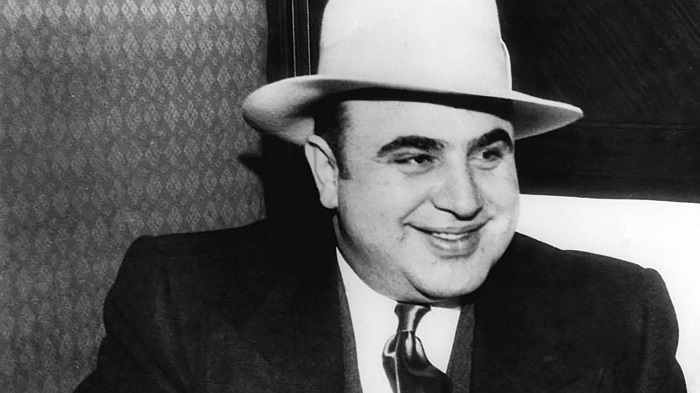Alphonse Capone, the legendary gangster, led one of the most powerful gangs in American history and made a huge fortune from illegal transactions. Already in his teens, Capone joined a street gang and began his criminal career. He joined the Five Points Gang and quickly became involved in various criminal activities.
In 1920, Capone moved to Chicago, where he became known as one of the city’s most dangerous criminals. His recognition in Chicago was so significant that his relatives joined him there. Despite his brutality in the underworld, Capone was devoted to his family. He married May Coughlin and remained with her for the rest of his life, having with her a son named Albert Francis “Sonny” Capone.
However, Capone hated his nickname “Scarface”, which he acquired as a result of an attack by the brother of a bar patron. He was stabbed three times, but he never attempted to retaliate for the attack. Eventually, Capone was recognized as public enemy number 1 and became one of the most notorious gangsters of his time. His legendary life continues to inspire film and literature, leaving an unforgettable mark on the history of crime.
Anyone interested in the story of the legendary gangster should know 6 Things You Should Know About Al Capone:
- respect for brother – Capone did not take revenge for the attack of the brother of a bar visitor, but, on the contrary, accepted him into his team, hiring him as a bodyguard. The nickname “Scarface” was given to him by the media after the incident;
- huge incomes – Capone’s gang managed to earn up to 100 million dollars a year from smuggling, gambling, prostitution and other criminal activities;
- charity – during the Great Depression, Capone opened the first soup kitchen in the United States and paid a tidy sum every day to feed the needy. This aroused public sympathy;
- sentence – In 1931, Capone was sentenced to 11 years in prison for tax evasion. This was the end of his criminal career.
- brother in the police – in parallel with his brother’s criminal activities, his older brother served in the police and fought against violators of Prohibition;
- death and burial – after leaving prison, Capone fell ill with syphilis and died of pneumonia at the age of 48. His brother paid for the funeral because Capone had no money left.
Alphonse Capone’s life was filled with drama, crime and unusual twists of fate, leaving an unforgettable mark on the history of crime.
